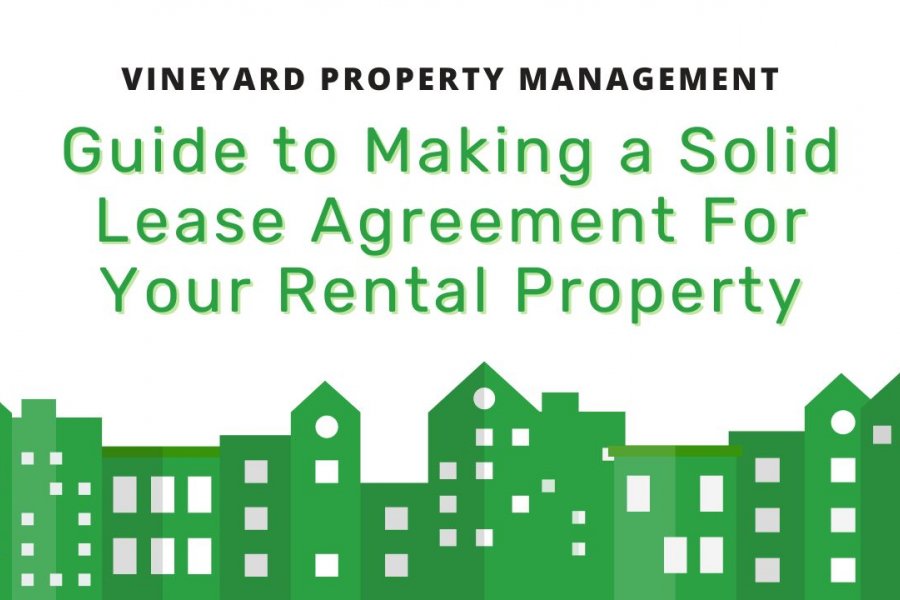
A well-crafted lease agreement not only protects your rights as a landlord but also provides clarity for your tenants on their responsibilities and expectations. It sets guidelines for rent payments and property maintenance and even outlines procedures for specific situations.
But what exactly makes a lease agreement "solid," and how can you make sure yours is up to par? This guide provides an overview of the basics of ensuring your rental property is properly documented with a comprehensive lease, helping you get one step closer to becoming a successful landlord.
Importance of a Leasing Agreement
No matter how careful you are, conflicts between tenants and landlords arise at different times. That's where the lease agreement comes in!
One of the primary benefits of a leasing agreement is that it helps landlords save time and prevent disputes. This document outlines both parties' obligations and responsibilities, which helps minimize misunderstandings and disagreements.
In addition, a written lease agreement is safer than an oral agreement in court. If a dispute does arise, a written agreement is concrete evidence that can be used to resolve the issue.
Drafting a Lease Agreement
When drafting a lease agreement, landlords have a few options. They can create the document themselves or seek assistance from a property management company to draft the agreement. Another option is a lease agreement template, a pre-made document that can be customized to fit your specific needs.
.jpg)
However, regardless of the method chosen, it is essential to consider state laws and local policies when drafting a lease agreement. These laws and policies can vary from state to state and city to city. A lease agreement that fails to comply with state and local laws may not be enforceable in court and can lead to legal complications.
Basics of a Lease Agreement: Essential Elements to Include
As a landlord, drafting a lease agreement can be a daunting task. However, it's essential to get it right to ensure a smooth rental experience for both you and your tenants. To help you get started, we've compiled a list of the most critical components every lease agreement should include.
The Names of All Parties Involved, Rental Property's Name and Address
Always include the names of all parties involved in the rental agreement and the property's name and address. This information will ensure that everything is clear about who the agreement pertains to and where the rental property is located.
Rent Due Date and the Amount of Rent
Next, be sure to specify the rent due date and the amount of rent that is due. It will help avoid misunderstandings or disagreements about payment, which can lead to unnecessary stress for both parties.
Rental Duration and Signatures
Mention rental duration, such as a start and end date, and all parties’ signatures. It will help to ensure that everyone is clear on the terms of the lease agreement and can reference it as needed throughout the rental period. Defining solid lease durations can help to prevent holdover tenancies.

Including these vital components in your lease agreement can help avoid misunderstandings and ensure a successful and stress-free rental experience. This will depend on if you have short-term or long-term tenants.
Key Clauses and Policies to Include in a Lease Agreement
A well-written lease agreement can help protect your property and interests as a landlord. Including important clauses and policies in the lease can help clarify expectations and prevent misunderstandings. Following are the clauses and policies to include in a lease agreement:
Subletting and Property Access Policies
Include clear policies regarding subletting and property access. This helps prevent unauthorized tenants from moving in and protects your property from damage. Ensure to outline how and when the landlord can access the property and what notice is required.
Tenant’s Obligations
Clearly state the tenant's obligations, including rent payments, maintenance responsibilities, and any rules or regulations of the property. With clearly stated obligations, the tenant will understand what is expected of them during their tenancy.
Breaking of Lease Policies
It is also important to include policies regarding breaking the lease, including consequences and fees. This helps protect the landlord's interests if the tenant leaves before the lease term ends.
Security Deposit Policy
Include a clear policy regarding security deposits, including the amount required and the conditions for withholding a portion or all the deposit.

This deposit is the best security for landlords, as they are protected against damages caused by the tenant and can be reimbursed for any necessary repairs or replacements.
Important Disclosures in Your Lease
Landlords must disclose certain information to their renters as part of federal, state, and local laws. These disclosures can vary depending on the state where the property is located. Here are some common examples:
Flood Zone
If a rental property is in an area prone to flooding, the landlord must notify the renters of this risk.
Bed Bugs
Landlords must provide information about bed bugs, including how to manage and prevent infestations, to their tenants.
Radon
If radon gas is detected in a rental property, landlords must disclose this information to their tenants for health and safety reasons.
Lead-based Paint
If a rental property was built before 1978, the landlord must disclose the existence of lead-based paint to their tenants.
Landlords need to comply with these disclosure requirements to ensure the safety and well-being of their tenants, as well as to avoid potential legal issues.
Bottom Line
Solid lease agreement is crucial for landlords and tenants. It clarifies responsibilities and expectations and protects both parties in case of any disputes. When drafting a lease agreement, it's essential to consider state and local laws and include all vital components such as rental property details, rent due date, rental duration, and signatures.
Contact Vineyard Property Management today if you need help drafting a comprehensive lease agreement. They will help you customize your leasing agreements and other hassles of managing the rental property!
